Period Clothes, Swords, Guns & Basha Topknots
Tuesday, August 24, 2010
 Congjiang, Guizhou, China
Congjiang, Guizhou, China
Hey Hey and a Big G'Day toya,
Period clothes, small swords, guns and topknots.
Don’t you just love small villages that have been left behind!
It took quite a bit to get here though, twelve hours on three buses to get from Xingyi to Kaili City and yesterday I left Kaili and took another nearing nine hour bus ride south which took me to the border of Guangxi Province and Guizhou Province. Time has almost run for this year’s Summer Beers N Noodles Adventure but I am determined to squeeze in another couple of villages before I finally throw my pack on my bed in Fujian Province.
So where am I found slurping my noodles and cold beer this evening?
Basha is a very old and special Miao Ethnic village which has been virtually untouched in any way by modernisation. Its residents still live in their wooden houses, practice centuries old customs along with their own unique beliefs. The village is perched on a hill and can be found seven kilometers from Congjiang town.
Legend says that the Basha's ancestors immigrated from heartland China to this isolated mountainous region over two thousand years ago.
The village is filled with Diaojiaolou which are traditional Miao structures that are found all over southeastern Guizhou and north western Guangxi Provinces. They are built on wooden stakes and when viewed from afar, the village consists of layer upon layer of moss covered bark roofs. Made of two floors, the front part of the second floor is supported with pillars while the rear half is usually built into the mountainside. The Miao family live on the second floor and the first floor is used as a store room along with housing the animals. Structures known as 'Rafts’ can also be found scattered throughout each village that are used to dry un-husked rice and corn and during the non-harvesting season, the wooden trestles are used to dry dyed cloth.
Throughout the village, can also be found multi level barns.
Grain and foodstuff is stored on the second floor to protect it from humidity.
As in all southern Chinese villages and wet areas such as Basha the buffalo is the beast of burden. Each animal is cared for by a designated villager who spends much of their life taking care of the animal as they graze the beast in the surrounding forests in the morning and return to the village as the sun sets.
Basha Village is home to over one thousand residents who live in four hundred households. Their ancestors were frontline troops who charged through forests and supposedly fought bears to guard the lands upon which they continue to live. Even today the men in Basha preserve their musketeer heritage and are the only Minority People or Tribe left in China that can legally carry guns.
A strong sense of precaution inherited from their ancestors keeps this village isolated from the outside world and they continue to lead a self-sufficient life in the hilly areas.
They create for themselves nearly all of life's necessities, from clothes, ornaments and bamboo baskets to farming tools. Their ethnic clothes and ornaments showcase the cleverness and adroitness of the local women. All of their garments are made of gunny cloth and the villagers maintain a unique code of dress dating back to the Qin Dynasty.
Basha men usually wear a collarless coat with buttons on the left side or down the front with baggy short trousers and don't usually wear shoes even during the cold winter. Women's clothes are much more colorful which consists of a coat buttoned down the front, a kilt and colorful wrappings.
The Basha People worship trees, especially maples, as gods.
They believe the buns on their heads represent trees, while the bluish purple clothes they wear represent bark. To make their clothes shiny and waterproof they simply add egg whites into the indigo when dying the coarse cloth. The felling of trees is forbidden and a tree is planted whenever a baby is born which is then cut down to make the coffin when the person dies.
Like men of the Imperial Dynasties, most Basha men still wear their hair long.
Basha boys, like the girls have to keep their hair until a certain age.
Young boys have to take part in a shaving ceremony between the ages of seven and fifteen. The tribe leader wets a sickle with the water used to boil eggs, and shaves off all of the boy's hair except for the central part, which is coiled into a bun. Boys get their first haircuts as a rite of passage and then are given a hunting rifle at the age of fifteen as a sign of adulthood.
Getting There & Other Stuff
I paid twenty Yuan for a mini-van.
He wanted fifty but after showing him that the streets of Congjian were very bare and that no one else was waiting to part with their money, he gave me a huge smile, told me that I was great at bargaining and down the empty road we sped. When we arrived the ticket box/shack was closed so after a happy good bye I headed into the village hoping to find somewhere to sit and have my fill of some local Basha food.
Thankfully, as usual I found that I was in the right place at the right time!
One of the first buildings to my right I found a small hostel in which for fifteen Yuan you can sit with the family and share their meal, if you are there at the right time of the day that is. As for accommodation there are only two or three other tiny places to throw your pack in and all come with simple rooms for you to place your head upon your pillow and to thank the stars above for being so lucky to be in such a wonderful village.
There are no taxi’s or public transport waiting for you when you decide to leave Basha Village so why not just walk the ten or so kilometers back to Congjian Town. It’s all downhill so it takes less than an hour and it is not only peaceful but very picturesque.
Beers N Noodles toya…..shane
___________________________________________________________
The soundtrack to this entry was by John Mayer
The album was ‘Continuum’
____________________________________________________________
Other Entries

 Congjiang, Guizhou, China
Congjiang, Guizhou, China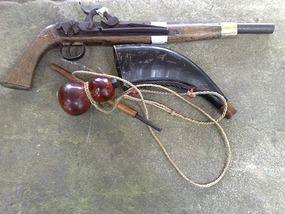
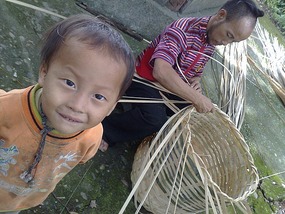
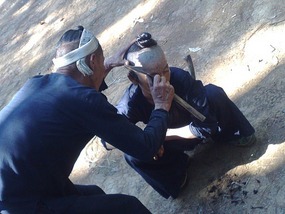
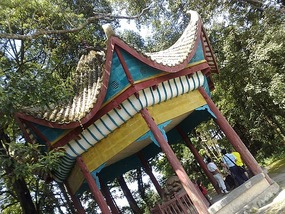
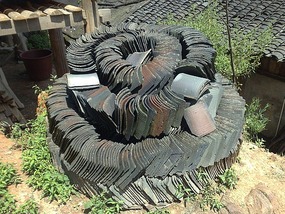
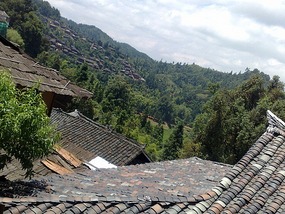
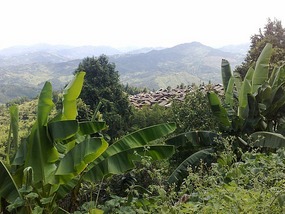
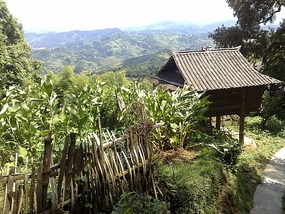
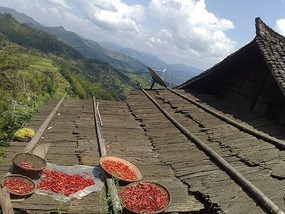
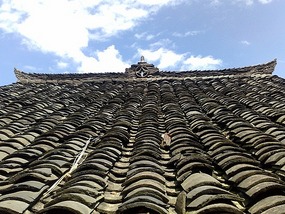
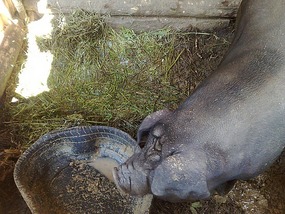
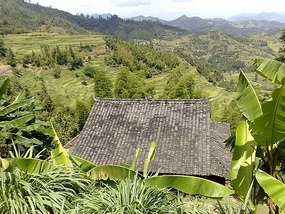
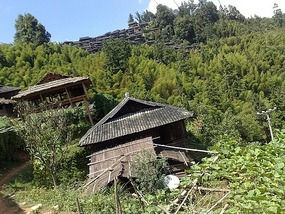
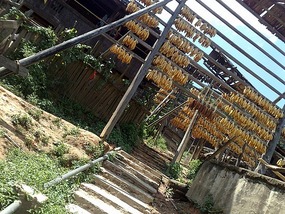
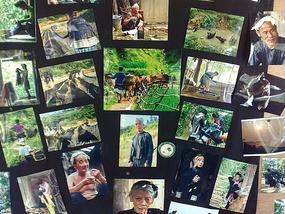
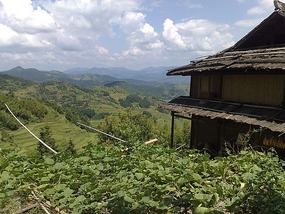
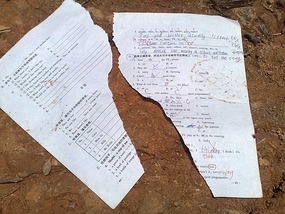
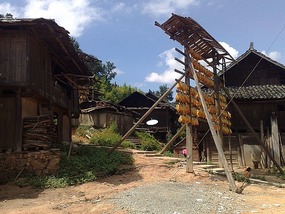
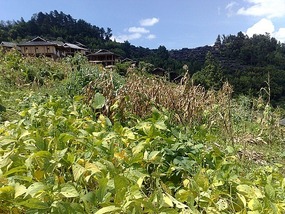
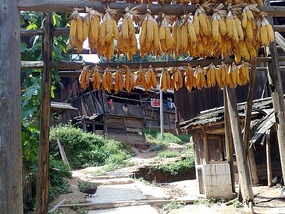
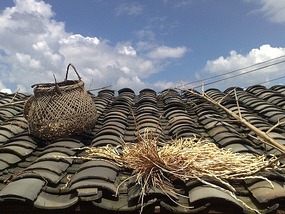
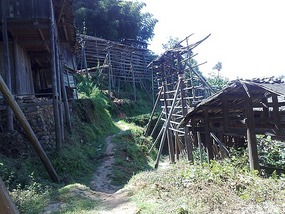
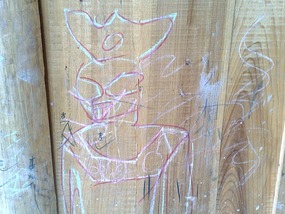
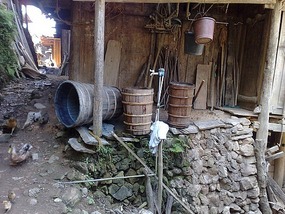
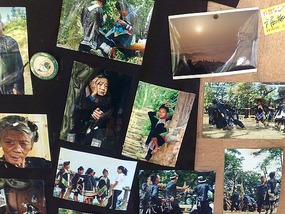
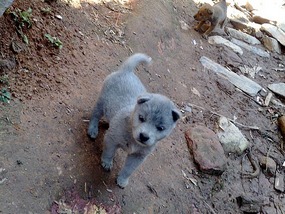
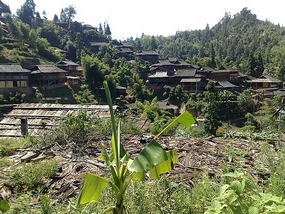
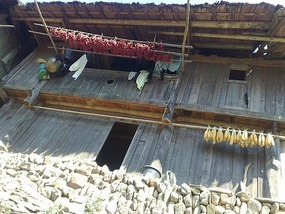
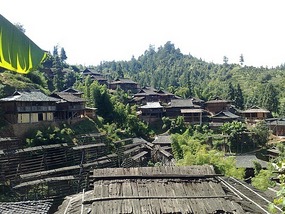
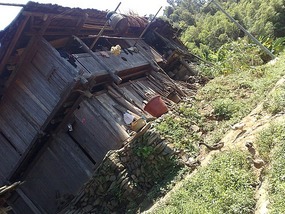
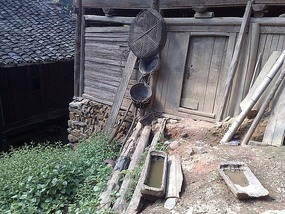
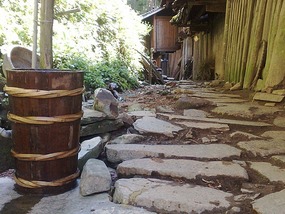
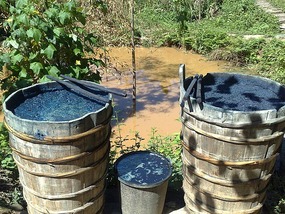
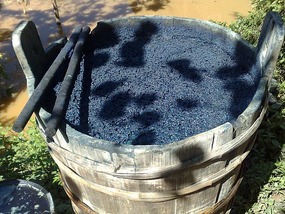
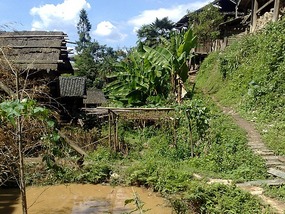
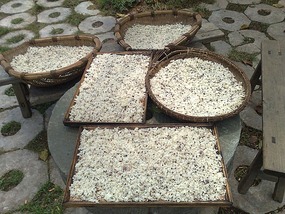
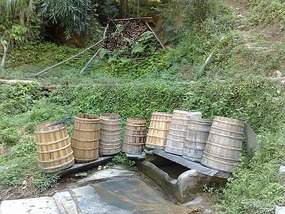
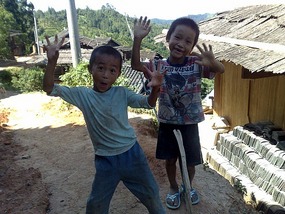
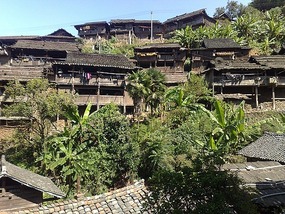
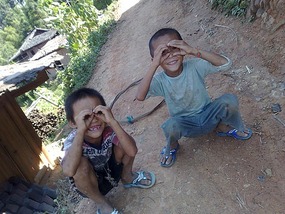
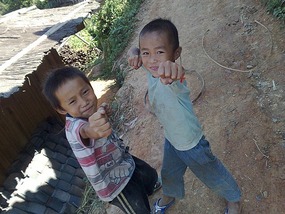
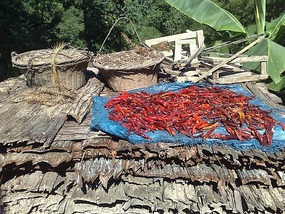
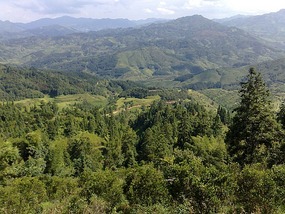
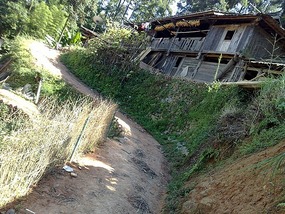
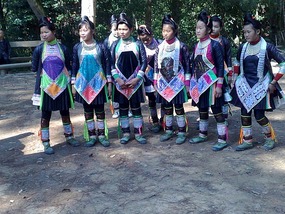
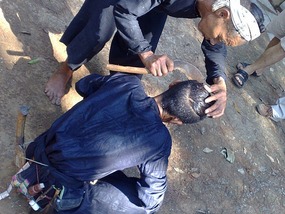
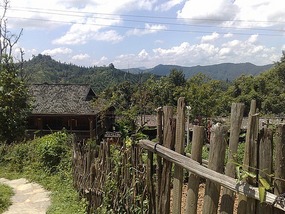
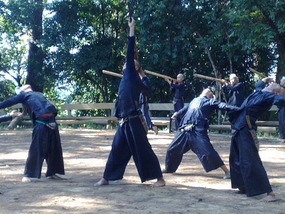
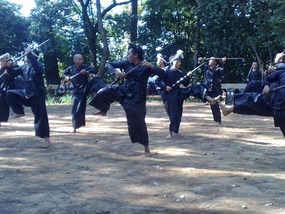
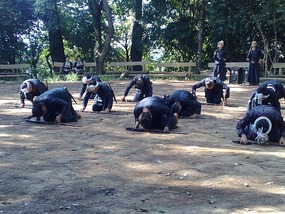
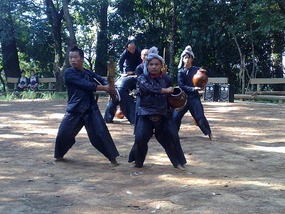
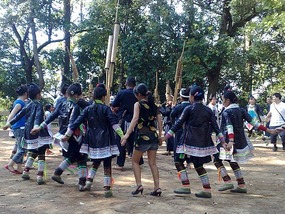
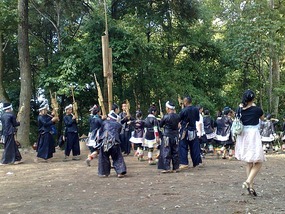
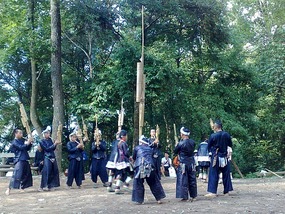
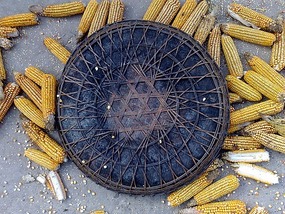
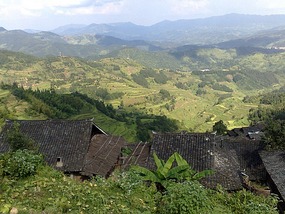
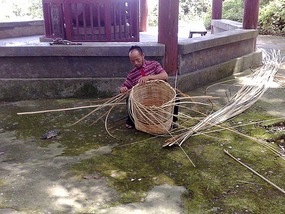
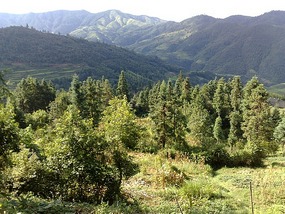
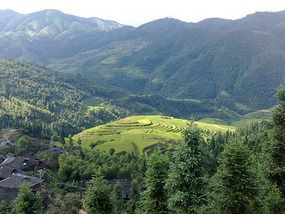
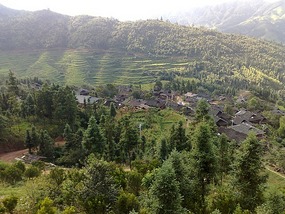
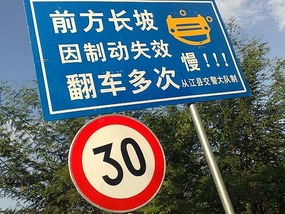
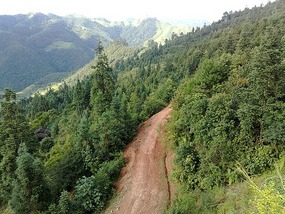
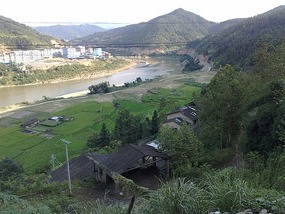
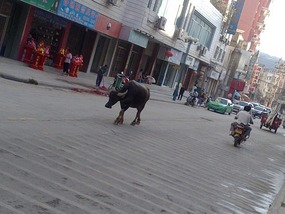
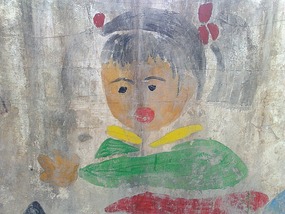
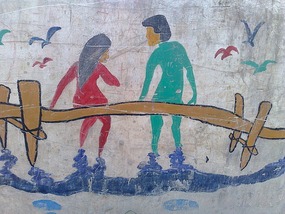
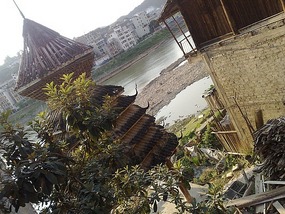
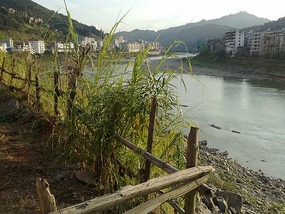
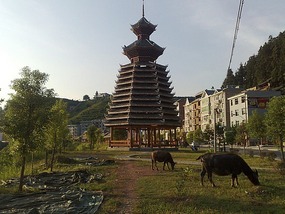
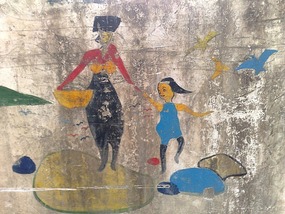
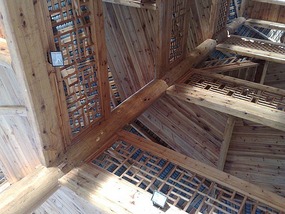
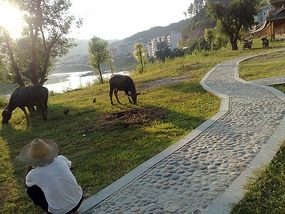
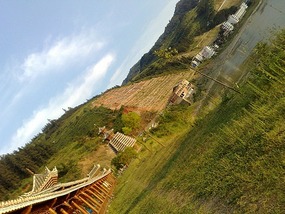
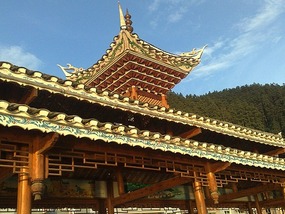
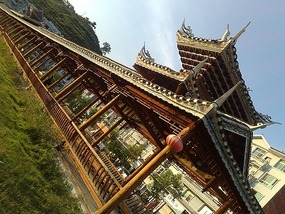
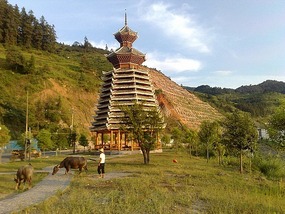
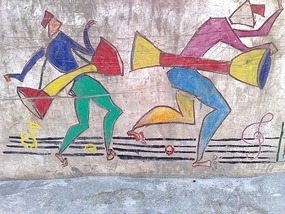
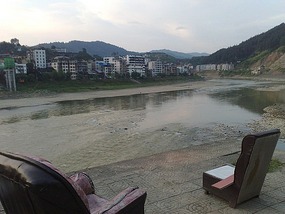
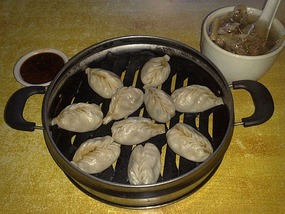
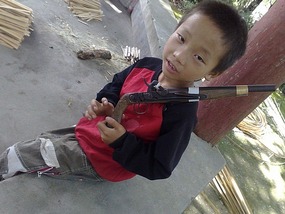

2025-05-22